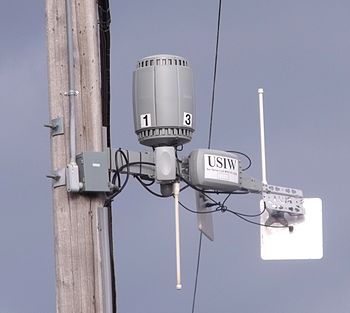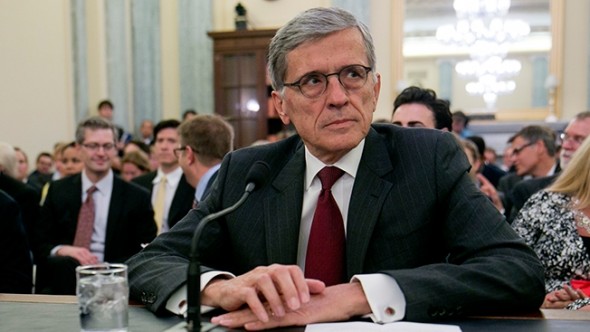
English: A wireless internet router, part of Minneapolis, Minnesota’s broadband wireless internet network run by U.S. Internet. (Photo credit: Wikipedia)
“Broadband” is another term that historically had a specific definition in the telecom industry but now politicians have co-opted it and made the definition squishy. Before the Internet was a commercial service, the industry referred to signals as being narrowband, wideband, and broadband. Broadband was defined as any signal being greater than 1.544 Mbit/s or a DS1/T1 rate. Now broadband has evolved from an adjective to a noun with a different meaning depending on how the FCC defines it. I guess I should think of it as further evolution of the English language.
All across America, people could be waking up to their last day with broadband internet access. Oh, the speed of the bits in their pipes isn’t changing, but what we call it might be. The FCC is set to vote on whether or not internet access should only be called broadband if it’s 25Mbps or higher downstream. The current standard is a measly 4Mbps, which ISPs are just fine with.
The new standards backed by chairman Wheeler would require ISPs to stop calling connections slower than 25Mbps “broadband,” which is a tier almost all offer as an entry-level package. There’s also an upload limit of 3Mbps, which is a bit more in-line with what US ISPs offer. It’s common for 50-100Mbps downstream connections to be paired with upstream that’s no faster than 5-10Mbps.
Under the current rules, anything that’s at least 4Mbps down and 1Mbps up is considered broadband. Almost all households have access to a wired connection that is at least that fast. If the FCC decides to adopt the new standard, there will be 19.4% of Americans without access to any kind of wired “broadband.” This obviously isn’t changing anything for them —broadband is just a word, but it should shine a light on the problem of broadband infrastructure in the US. Rural areas are often lagging far behind other areas. ISPs build up their lines just fast enough to keep people from rioting and demanding municipal fiber.









